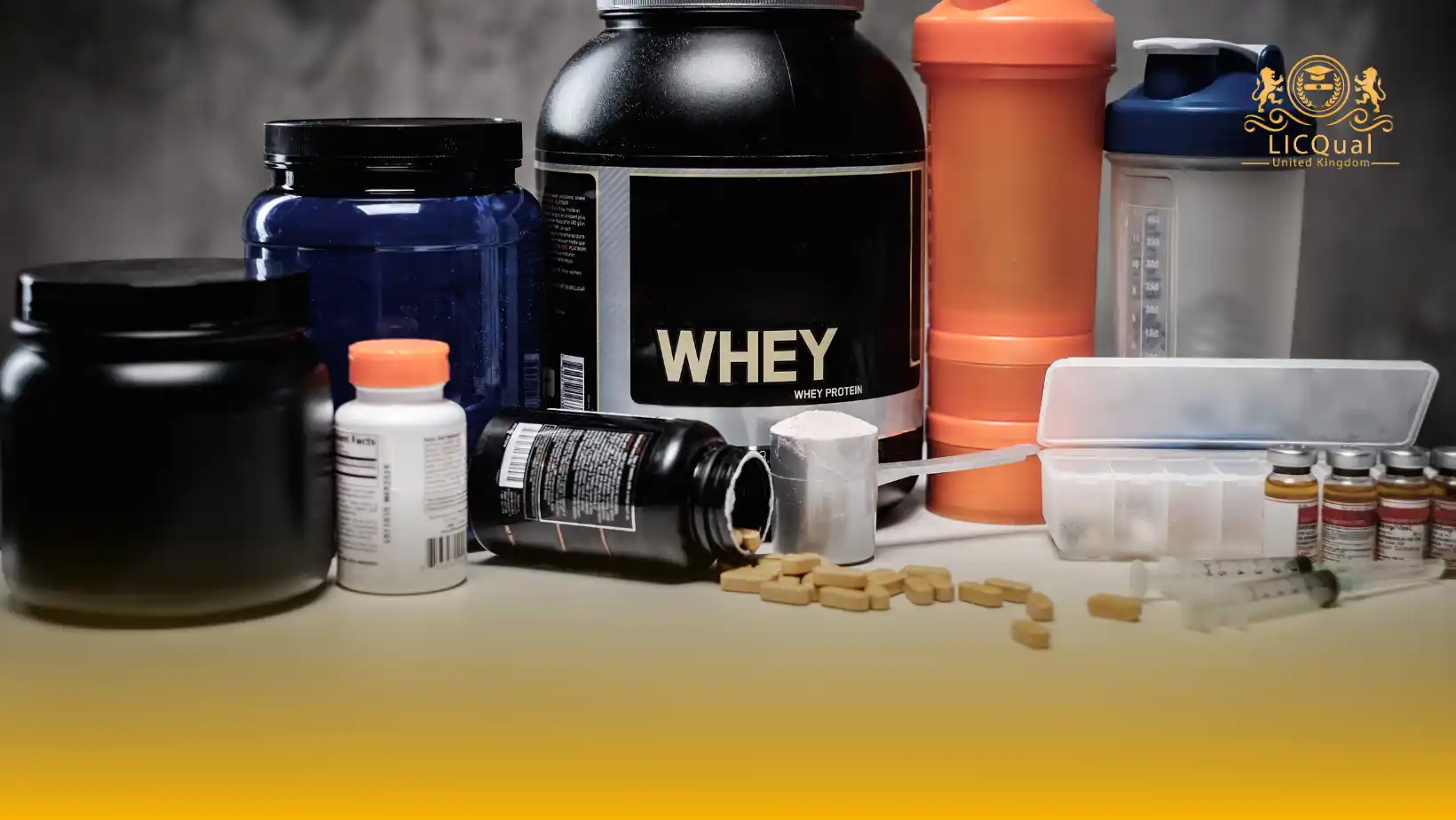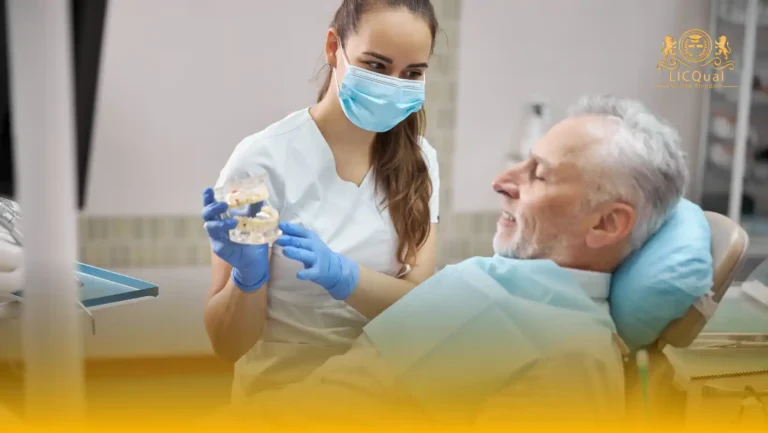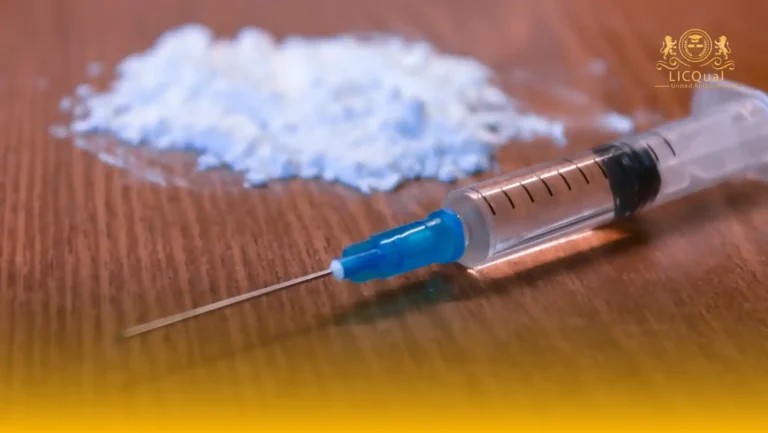The LICQual Level 6 Diploma in Sports Nutrition (Dip Sports Nutrition) is an advanced qualification designed for professionals who wish to specialise in the science and practice of nutrition for athletes and active populations. This diploma equips learners with in-depth knowledge of sports nutrition, performance enhancement strategies, and evidence-based dietary planning to support optimal health, fitness, and athletic outcomes.
Aimed at nutritionists, dietitians, sports scientists, fitness professionals, and healthcare practitioners, this qualification provides learners with the skills to assess, plan, and implement tailored nutritional interventions for a wide range of sporting and exercise contexts. Learners will explore the physiological, biochemical, and psychological aspects of sports nutrition while developing practical competencies in performance analysis, dietary assessment, supplementation, and recovery strategies.
Centres delivering the Level 6 Diploma in Sports Nutrition are required to uphold the highest standards of education. This includes employing qualified and competent staff, providing access to all essential learning resources, and creating a supportive environment that enables learners to achieve their full potential. Structured teaching, practical applications, and rigorous assessment ensure that learners gain the confidence and expertise necessary to excel in sports nutrition roles.
By completing the LICQual Level 6 Diploma in Sports Nutrition, learners not only enhance their professional knowledge and practical skills but also demonstrate a commitment to ongoing professional development (CPD). This qualification is ideal for those seeking leadership positions, specialised practice, consultancy roles, or advanced career opportunities in sports, fitness, healthcare, and wellness sectors.
Course Overview
Qualification Title
LICQual Level 6 Diploma in Sports Nutrition (Dip Sports Nutrition)
Total Units
6
Total Credits
120
GLH
480
Qualification #
LICQ2201063
Qualification Specification
To enroll in the LICQual Level 6 Diploma in Sports Nutrition (Dip Sports Nutrition), applicants must meet the following criteria:
|
Qualification# |
Unit Title |
Credits |
GLH |
|---|---|---|---|
|
LICQ2201063-1 |
Advanced Exercise Physiology and Metabolism |
20 |
80 |
|
LICQ2201063-2 |
Sports Nutritional Assessment and Analysis |
20 |
80 |
|
LICQ2201063-3 |
Performance Nutrition and Dietary Interventions |
20 |
80 |
|
LICQ2201063-4 |
Supplementation, Ergogenic Aids, and Functional Foods |
20 |
80 |
|
LICQ2201063-5 |
Research Methods and Evidence-Based Practice in Sports Nutrition |
20 |
80 |
|
LICQ2201063-6 |
Professional Practice, Ethics, and Leadership in Sports Nutrition |
20 |
80 |
By the end of this course, learners will be able to:
Unit 1: Advanced Exercise Physiology and Metabolism
By the end of this unit, the learner will be able to:
- Explain the physiological systems involved in exercise and their adaptations to training
- Analyse energy metabolism and fuel utilisation during different types of physical activity
- Evaluate hormonal and biochemical responses to training and competition
- Assess the impact of exercise-induced stress and recovery strategies on performance
Unit 2: Sports Nutritional Assessment and Analysis
By the end of this unit, the learner will be able to:
- Conduct comprehensive nutritional assessments for athletes using anthropometric, biochemical, dietary, and performance-based methods
- Analyse and interpret nutritional data to identify deficiencies and optimise performance
- Select appropriate assessment tools and techniques for different athlete populations
- Apply assessment findings to inform evidence-based nutrition planning
Unit 3: Performance Nutrition and Dietary Interventions
By the end of this unit, the learner will be able to:
- Design personalised nutrition strategies to enhance training, performance, and recovery
- Evaluate the effectiveness of macronutrient and micronutrient manipulation in different sports contexts
- Implement nutrition plans for endurance, strength, and team-based sports
- Monitor, review, and adjust dietary interventions to optimise athletic outcomes
Unit 4: Supplementation, Ergogenic Aids, and Functional Foods
By the end of this unit, the learner will be able to:
- Critically assess the evidence for supplements, ergogenic aids, and functional foods in sport
- Evaluate safety, legality, and efficacy considerations for supplementation
- Integrate functional foods and bioactive compounds into nutrition strategies for performance and recovery
- Apply current research to make informed decisions regarding supplementation for athletes
Unit 5: Research Methods and Evidence-Based Practice in Sports Nutrition
By the end of this unit, the learner will be able to:
- Apply quantitative and qualitative research methods to sports nutrition studies
- Critically appraise scientific literature for validity, reliability, and applicability to practice
- Interpret research data to inform evidence-based performance nutrition strategies
- Implement evidence-based practice to enhance athlete nutrition and training outcomes
Unit 6: Professional Practice, Ethics, and Leadership in Sports Nutrition
By the end of this unit, the learner will be able to:
- Demonstrate professional and ethical standards in sports nutrition practice
- Apply leadership, management, and consultancy principles in sports and athletic settings
- Communicate effectively with athletes, coaches, and multidisciplinary teams
- Plan and engage in Continuing Professional Development (CPD) to advance career progression
The LICQual Level 6 Diploma in Sports Nutrition is ideal for anyone looking to enhance their expertise in nutrition for athletes and active individuals. This course equips learners with advanced knowledge and practical skills to optimize performance, support recovery, and improve overall health through nutrition.
Nutritionists and Dietitians
- Develop advanced skills in sports-specific dietary planning
- Learn evidence-based strategies to enhance athletic performance
- Assess nutritional needs for different types of athletes
- Apply functional foods and supplementation for recovery
- Support clients with special dietary requirements
- Strengthen professional credibility with an internationally recognized diploma
Fitness and Strength Coaches
- Understand the role of nutrition in training and performance
- Integrate dietary advice into fitness programs
- Enhance client outcomes through tailored nutrition plans
- Learn nutrient timing and energy management strategies
- Develop practical skills for hydration and recovery guidance
- Gain confidence to advise athletes of all levels
Healthcare Professionals
- Expand knowledge of nutrition for injury prevention and recovery
- Learn to manage diet for chronic conditions in active individuals
- Apply advanced nutrition principles in clinical or wellness settings
- Support patients with performance-related nutritional advice
- Enhance professional expertise in sports healthcare
- Prepare for leadership or consultancy roles in nutrition and wellness
Students and Career Advancers
- Gain an internationally recognized Level 6 qualification
- Build advanced knowledge in sports nutrition and performance
- Develop practical skills applicable in fitness, healthcare, or sports sectors
- Prepare for further postgraduate study or specialized training
- Increase employability in nutrition, wellness, and sports industries
- Learn evidence-based strategies for client or athlete support
Athletes and Sports Enthusiasts
- Understand how nutrition affects performance, recovery, and endurance
- Learn strategies to optimize energy, strength, and stamina
- Develop personalized meal and hydration plans
- Gain insight into supplements and functional nutrition
- Improve performance through science-backed dietary choices
- Support long-term health and athletic longevity
Coaches and Team Managers
- Implement nutrition strategies for entire teams
- Monitor athlete dietary compliance and performance outcomes
- Educate athletes on nutrition best practices
- Design menus and meal plans for training and competition
- Ensure safe and effective use of supplements
- Strengthen team results through evidence-based nutrition planning
Wellness and Sports Consultants
- Offer advanced sports nutrition advice to clients or organizations
- Develop comprehensive nutrition programs for performance and recovery
- Understand regulatory standards for supplements and dietary guidance
- Enhance professional credibility and client trust
- Apply knowledge in gyms, wellness centers, or private practice
- Expand career opportunities in sports nutrition consultancy
To deliver the LICQual Level 6 Diploma in Sports Nutrition (Dip Sports Nutrition) effectively, centres must meet the following requirements to ensure high-quality training and learner success:
- Qualified and Competent Staff: All teaching and assessment staff must hold relevant qualifications in sports nutrition, dietetics, exercise science, or related healthcare fields, with substantial professional experience. Staff should demonstrate the ability to deliver Level 6 curriculum content and support learners in achieving learning outcomes.
- Comprehensive Learning Resources: Centres must provide access to essential learning materials, including textbooks, research journals, online databases, practical tools, and multimedia resources to support evidence-based learning and practical application.
- Suitable Facilities and Equipment: Centres should have classrooms, laboratories, and practical spaces that allow interactive learning, workshops, and hands-on assessments. Access to IT resources, including computers, software, and reliable internet connectivity, is essential.
- Assessment and Quality Assurance Procedures: Centres must implement robust assessment processes aligned with Level 6 standards, ensuring assessments are fair, valid, and reliable. Quality assurance procedures should monitor teaching effectiveness, learner progress, and achievement.
- Learner Support: Centres should provide guidance on study skills, access to tutors, and advice on professional development opportunities to support learners throughout the programme.
- Commitment to Continuing Professional Development (CPD): Centres must encourage CPD for both staff and learners, promoting ongoing skill development and career progression.
- Regulatory Compliance: Centres must comply with all relevant health, safety, and educational regulations, ensuring a safe, professional, and conducive learning environment.
Meeting these requirements ensures that learners receive high-quality education, develop advanced sports nutrition competencies, and achieve their full potential in professional practice.
Assessment and Verification
All units within this qualification are subject to internal assessment by the approved centre and external verification by LICQual. The qualification follows a criterion-referenced assessment approach, ensuring that learners meet all specified learning outcomes.
To achieve a ‘Pass’ in any unit, learners must provide valid, sufficient, and authentic evidence demonstrating their attainment of all learning outcomes and compliance with the prescribed assessment criteria. The Assessor is responsible for evaluating the evidence and determining whether the learner has successfully met the required standards.
Assessors must maintain a clear and comprehensive audit trail, documenting the basis for their assessment decisions to ensure transparency, consistency, and compliance with quality assurance requirements.







